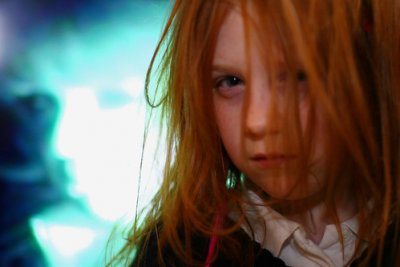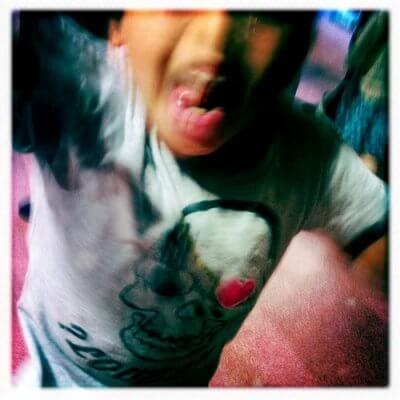Conduct Disorder Symptoms – Worried About Your Child?

By: anthony kelly
by Andrea M. Darcy
Has your child been showing conduct disorder symptoms? Acting out more and more? And consistently causing problems at school?
What is conduct disorder?
Children are like any of us. They are affected by stress and life change, as well as by hormones and bodily changes. And they are trying to understand themselves and the world. So they will test limits, have tantrums, or even be destructive.
But if your child is consistently, over time, acting out in ways that disregard and disrespect others? If it’s not just naughtiness, but if they are breaking rules other children don’t? Then it can be time to consider conduct disorder.
What is conduct disorder? It means your child or adolescent has ongoing and persistent tendencies towards antisocial, defiant, or even aggressive behaviours. Refusing to behave as expected for their age, they are disruptive and low on remorse. Normal life and development becomes very challenging for your child and your family.
Conduct disorder symptoms
Symptoms of conduct disorder become more sophisticated with age.
Symptoms in young children can include:
- don’t seem to be afraid of anything
- don’t obey rules or go along with things
- hurting other kids – pushing, hitting, biting
- breaking things on purpose.

By: Lance Shields
Symptoms in older children can include:
- often angry
- blame others for everything
- picking fights with other children
- seem to enjoy upsetting others
- hurting animals
- bullying and teasing others
- obvious disregard for rules
- lying for the sake of lying
- stealing items regardless of worth.
Symptoms in adolescents can include:
- rage issues
- fighting and violent behaviour
- no respect for the law (theft, vandalism, arson)
- not going to school, refusing curfews
- enjoy taking risks
- and take risks with their health – unsafe sex, overuse of drugs and alcohol
- no respect for teachers and other authorities
- doing poorly at school even if bright
- few to no real friends
- sexual agression.
Do symptoms differ between boys and girls?
Yes, they can, which some believe has led to more boys being diagnosed with conduct disorder than girls. The National Institute for Health and Care Excellence (NICE) in their guidelines for conduct disorder recognition and management states that “7% of boys and 3% of girls aged 5 to 10 years have conduct disorders; in children aged 11 to 16 years the proportion rises to 8% of boys and 5% of girls.”
Boys tend to be more extroverted with conduct disorder, with more apparent violence and rage. Girls can resort to more hidden symptoms, like lying, manipulation, risky sex, shoplifting, and running away.
Other connected issues and disorders
Attention deficit hyperactivity disorder (ADHD) is often a comorbid diagnosis with conduct disorder. Although of course many children with ADHD do not have conduct issues.
Children and adolescents with conduct disorder are also more likely to have learning difficulties and suffer depression or have signs of PTSD.
Environmental factors and conduct disorder
Difficult environments or childhood trauma make your child more likely to have conduct disorder. This can include:
- abuse and/or neglect as a child
- a parent with mental health issues
- family adversity.
The Royal College of Psychiatrists (RCP) here in the UK points out that parenting factors can also add to a diagnosis of conduct disorder. “Parents can sometimes make things worse by giving too little attention to good behaviour,” they point out, “always being too quick to criticise, or by being too flexible about the rules and not supervising their children.”

photo by Mehrdad Haghighi
Oppositional defiant disorder vs conduct disorder vs antisocial personality disorder
Heard all these terms and not sure of the difference?
Oppositional defiant disorder (ODD) involves similar levels of defiance and antisocial behaviour. The difference is the extent and severity of the behaviour. With ODD a child might act out consistently at home, but might manage to get by at school. More common in children under ten, research shows that around a quarter of children with ODD go on to have CD.
Keep in mind that all these terms are not exact illnesses. They are terms created by mental health professionals to describe groups of children with similar symptoms. The terms change, and not all diagnostic manuals agree.
For example, the World Health Organisation, in their manual the ICD-10, prefer to divide conduct disorders into socialised conduct disorder, unsocialised conduct disorder, conduct disorders confined to the family context, and oppositional defiant disorder.
Antisocial personality disorder, like all personality disorders, is a diagnosis only for those aged 18 and above. Having conduct disorder in childhood does make someone more likely to receive a diagnosis of this personality disorder once they reach adulthood.
Is a diagnosis of conduct disorder always a good thing?
A diagnosis can serve to get your child the help he or she needs in order to learn more appropriate social behaviours.
And if things like learning differences and previous traumas are increasing your child’s negative behaviours, then getting help can make a big difference.
*But where a diagnosis goes wrong is it if leads to your child feeling labelled and given up on.
Again, mental health diagnoses are not medical illnesses you see under a microscope. They are simply terms created by mental health professionals to more easily describe groups of people with similar symptoms.
Nor is diagnosis a perfect art. Criteria change with new editions of diagnostic manuals. And some mental health professionals question if it is appropriate to diagnose young children, when some children experience extreme behaviours as a part of their normal development but grow out of it.
Perhaps the best approach is to always remember, regardless of labels, your child is an individual. And what matters is getting support to alleviate symptoms and to help your family function.
Want a professional opinion of your child’s behavioural issues? We connect you with highly experienced child psychiatrists, child psychologists, and educational psychologists. Or consider support for yourself, too – find a UK-wide registered therapist or online counsellor on our booking site.
Still have a question about conduct disorder symptoms? Or want to share you experience with other readers? Use the comment box below.




